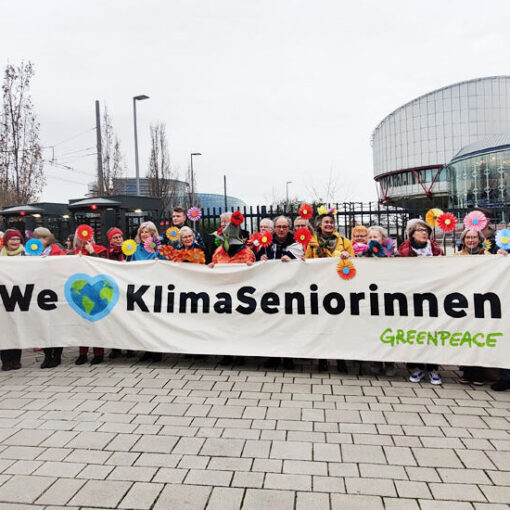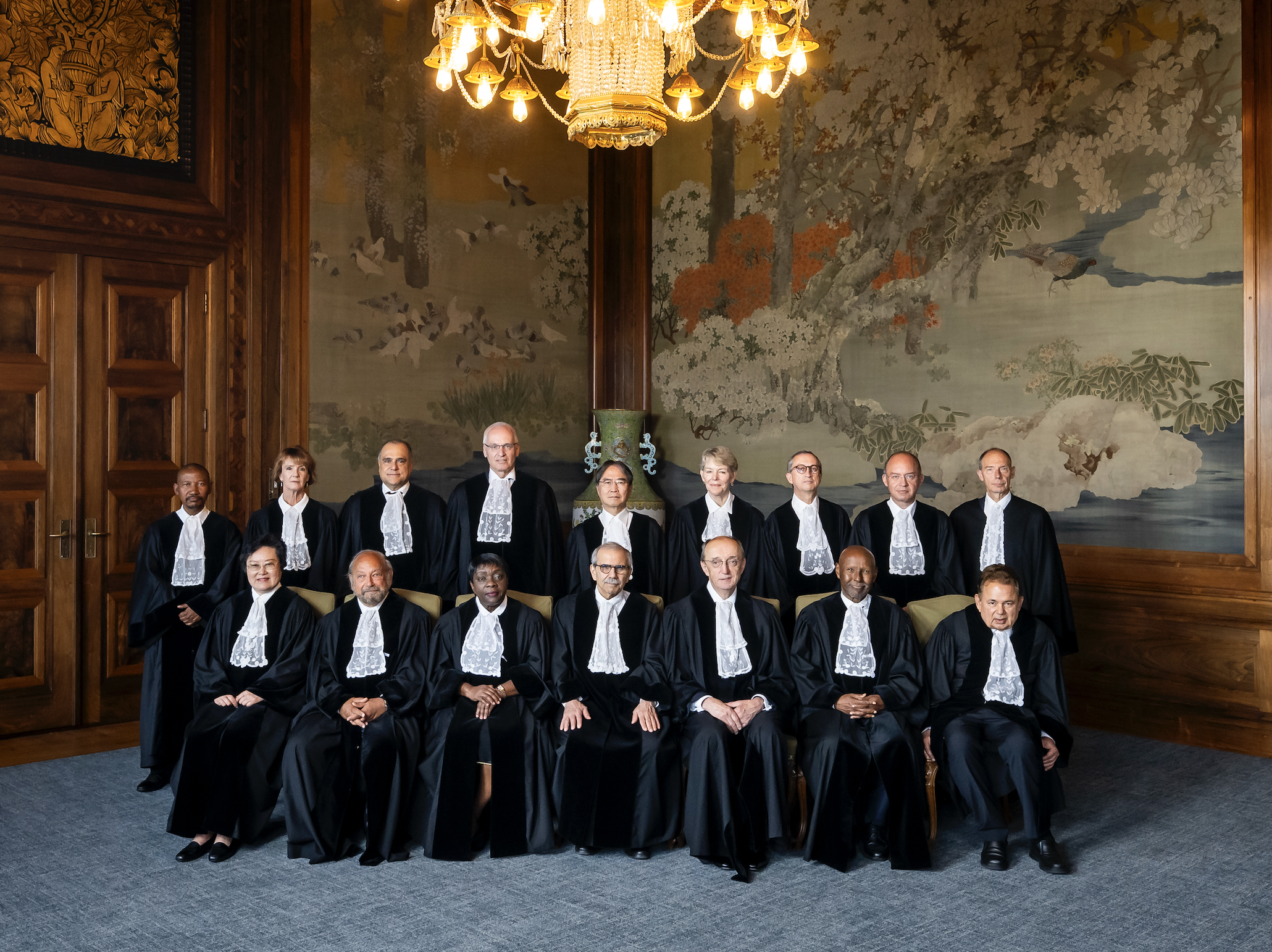In recent months, there has been a growing succession of actual and proposed investigations into fossil fuel companies, and their purported collaborators, over whether these groups lied to the public or investors about the risks of climate change.
The investigations come amid a series of reports that the fossil fuel industry – Exxon Mobil in particular – participated in a longstanding campaign of “disinformation, denial and delay” to sow doubt about climate change and undermine climate science findings. Most prominent among these accounts are from September and October 2015, in InsideClimate News and the Los Angeles Times, which detailed a $30 million, multi-decade effort led by Exxon Mobil to promulgate doubt about climate change, despite evidence that the company knew as early as 1977 that its product was contributing to climate change. Another report, released in April 2016 by the Center for International Environmental Law (CIEL), provides documents showing that Exxon and other fossil fuel companies participated in studies on fossil fuel burning and climate change starting in the 1950s. CIEL also claims that fossil fuel companies had longstanding initiatives “to use science and public skepticism to prevent environmental regulations they deemed hasty, costly and unnecessary.”
New York Investigation
The first reports of investigations into fossil fuel companies came in November 2015, when it was announced that the New York State Attorney General’s office had issued an 18 page subpoena to Exxon Mobil, seeking extensive financial records, emails, and other documents, with a focus on whether the company’s statements to investors about climate risks were consistent with the company’s own internal scientific research. While there has not yet been an official confirmation of the legal authority underpinning the New York investigation, it has widely been presumed that the investigation is being made under New York’s Martin Act, a powerful state law against investor fraud that gives the New York State Attorney General what attorneys at Dechert have referred to as “exceptionally broad enforcement authority to bring both civil and criminal action without a showing of scienter or intent to defraud.” (A more in-depth summary of the New York investigation is available here.) So far, Exxon has turned over 10,000 pages of documents in response to the New York subpoena.
California Investigation
In January 2016, news surfaced that the California State Attorney General’s office had begun a similar investigation into Exxon Mobil. The particular legal violations being considered have not been specified here either, but the Los Angeles Times reported that the investigation is generally over “whether Exxon Mobil Corp. repeatedly lied to the public and its shareholders about the risk to its business from climate change – and whether such actions could amount to securities fraud and violations of environmental laws.” It is unclear whether any subpoena or other document request has been issued by California authorities.
Massachusetts Investigation
In March 2016, the Attorneys General of Massachusetts and the U.S. Virgin Islands announced that they, too, had begun investigations into whether Exxon Mobil lied to investors and others about the threat of climate change. Moreover, at the news conference for these newest Exxon investigations (held at the New York Attorney General’s office), it was announced that Attorneys General from California, Connecticut, the District of Columbia, Illinois, Iowa, Maine, Maryland, Massachusetts, Minnesota, New Mexico, New York, Oregon, Rhode Island, Virginia, Vermont, the Virgin Islands, and Washington state –17 jurisdictions in total – had all agreed to coordinate legal inquiries into Exxon. While only the four jurisdictions have made clear that they are currently conducting investigations, in announcing the collaboration, New York Attorney General Eric Schneiderman noted that “not every investigation gets announced at the outset.”
The specific laws governing the Massachusetts investigation, like the California and New York investigations, have not yet been named. But it appears the Massachusetts investigation is also based on state investor laws, and potentially consumer protection laws, as well. Massachusetts Attorney General Maura Healey, in announcing in the investigation, commented that there is a “troubling disconnect between what Exxon knew, what industry folks knew, and the company and industry chose to share with investors and the American public” and that “fossil fuel companies that deceived investors and consumers about the dangers of climate change must be held accountable.” Like with the California investigation, it is unclear whether any subpoena or other document request has been issued in Massachusetts.
The U.S. Virgin Islands Investigation
Announced the same day as the Massachusetts investigation, the Virgin Islands investigation appears to go several steps further than the other pending investigations. For one, Virgin Islands Attorney General Claude Earl Walker has revealed that, instead of an investigation premised on securities or consumer fraud laws, the investigation into Exxon is being conducted under the local anti-racketeering law, the Virgin Island’s Criminally Influenced and Corrupt Organizations Act (“CICO”), originally designed to combat organized crime.[1] As part of the investigation, Attorney General Walker has served a subpoena on Exxon, alleging a possible CICO violation by “having engaged or engaging in conduct misrepresenting [Exxon’s] knowledge of the likelihood that [Exxon’s] products and activities have contributed and are continuing to contribute to Climate Change in order to defraud the Government of the United States Virgin Islands. . . and consumers in the Virgin Islands.”
As part of the necessary predicate offenses to allege CICO, Virgin Island’s subpoena on Exxon also cites Virgin Islands criminal fraud laws 14 V.I.C. § 834 (prohibiting financial fraud by “false or fraudulent representations or pretenses”) and 14 V.I.C. § 551 (prohibiting conspiracy, including conspiracy “to obtain money or property by false pretenses”). The subpoena seeks documents concerning 16 listed topics, from 1977 to the present, including Exxon’s research into climate change, Exxon’s research into fossil fuels’ impacts on climate change, Exxon’s internal communications on climate change advocacy and strategy, internal communications regarding statements on climate change, and Board meeting minutes on climate change. The subpoena also seeks “[a]ll documents and communications concerning research, advocacy, strategy, reports, studies, reviews or public opinions regarding Climate Change” that Exxon sent or received from 90 groups, including the American Petroleum Institute, the Heritage Foundation, and the Heartland Institute, among others.
The Attorney General for the Virgin Islands has also subpoenaed two alleged collaborators, the Competitive Enterprise Institute (“CEI”) and the DCI Group. Both CEI, “a non-profit public policy organization dedicated to advancing the principles of limited government, free enterprise, and individual liberty,” and DCI Group, a public relations and lobbying firm, were subpoenaed for a range of documents related to communications with Exxon Mobil over climate change and Exxon Mobil’s funding of climate change studies. Both CEI and DCI Group have openly partnered with Exxon and other fossil fuel companies in the past, and their work has been described as “fight[ing] against any action to tackle climate change.”
While there has been no statement yet from DCI Group, CEI has announced it will “vigorously fight to quash the subpoena.” The CEI General Counsel stated it “is an affront to our First Amendment rights of free speech and association for Attorney General Walker to bring such intimidating demands against a nonprofit group.”
Exxon’s own response to the various investigations has become increasingly combative. Back in November, when only the New York investigation had become public, the company released a statement saying “[w]e unequivocally reject allegations that ExxonMobil suppressed climate change research” but did not further publicize a stance against the investigation. Following the more recent announcements of the Massachusetts and Virgin Island investigations, however, Exxon released a series of stronger statements that “allegations leveled against ExxonMobil again today are politically motivated and based on discredited reporting funded by activist organizations” and “are an attempt to limit free speech” via a “coordinated attack” trying to “demonize ExxonMobil.”
Exxon has also filed litigation attempting to quash its Virgin Islands subpoena. On April 13, Exxon filed a petition for declaratory relief in state district court in Tarrant County, Texas – where Exxon headquarters are located – alleging that the Virgin Islands subpoena “violate[s] ExxonMobil’s constitutionally protected rights of freedom of speech, freedom from unreasonable searches and seizures, and due process of law and constitute the common law tort of abuse of process.” In the court filings, Exxon also claims that it has “widely and publicly confirmed that it recognizes that the risk of climate change and its potential impacts on society and ecosystems may prove to be significant” for at least the past decade, and thus the subpoena is outside of the five year statute of limitations under the Virgin Island’s anti-racketeering law.
Other States
The spate of various state investigations has been criticized, so far, by the Attorneys General of Alabama, Kansas, Louisiana, Oklahoma, and West Virginia. Meanwhile, the New Hampshire Attorney General is reportedly considering joining the investigation efforts. The Democratic candidate for the Pennsylvania Attorney General’s office has also said that, if elected, he would “join in looking closely at whether fossil fuel companies like Exxon Mobil have violated Pennsylvania’s laws.”
Federal Investigations
There have also been calls for federal investigations into Exxon or other fossil fuel companies for “promulgat[ing] climate denialism.” In response to a specific request by U.S. Representatives Ted Lieu and Mark DeSaulnier (both D-CA) – asking the Department of Justice to consider whether Exxon had violated “RICO, consumer protection, truth in advertising, public health, shareholder protection or other laws” – the Department of Justice forwarded the matter to the FBI “to conduct the initial fact finding” and determine if any federal investigation is warranted. There are no reports yet on the results of the FBI’s initial survey. Representative Lieu also partnered with Representatives Peter Welch (D-VT) and Matthew Cartwright (D-PA) to ask for similar investigations of Shell Oil, as they believe that Shell “participated with Exxon’s pattern of deception.” There has been no response from the federal government regarding any potential Shell investigations.
Some Preliminary Legal Analysis
Reactions to these investigations have, not surprisingly, been extremely mixed – former Vice President Al Gore said he “congratulated the [Attorneys General]” for the “the best, most hopeful step I can remember in a long time” towards taking action on climate change, while Rich Lowry, editor of the National Review, has criticized the investigations as a “blatant abuse of power” and a violation of “the First Amendment and the rule of law.”
There is also a debate over whether the provisions in existing securities fraud, consumer protection, and racketeering laws actually apply to the situation here. Legal scholars have argued over whether Exxon (or other groups) were publicly stating “opinions” – which, even when biased, are generally not actionable – or whether the statements were objectively false, and thus actionable. Professor John Coffee, director of the Center on Corporate Governance at Columbia Law School, writes that we must “define where the point is at which a robust political debate turns into a ‘fraudulent’ effort to suppress the truth.”
This turning point may well vary on a state-by-state basis, when it comes to the separate investigations by New York, California, Massachusetts, the Virgin Islands, and potentially others. But, given that relatively few internal documents have publicly surfaced in recent months, any factual determination either way here is likely premature.
In addition, there are questions over whether any misrepresentations were actually material to investors or consumers such that investors or consumers would have acted any other way even if fossil fuel companies had provided different statements. Moreover, depending on the specific state laws being considered, there may be additional elements that need to be proved, such as reliance by investors or consumers, and / or resulting monetary damages.
Finally, it is important to remember that no lawsuits or charges have been filed yet (save Exxon’s Texas litigation in response to the Virgin Islands subpoena) – and in fact, may never be filed. These investigations are only preliminary efforts to determine if enforcement action is warranted. It remains to be seen what the investigations will uncover, if anything, to allow the various Attorneys General to proceed in taking legal action against Exxon or others.
The state Attorneys General investigations of Exxon Mobil, as well as the New York Attorney General’s recent settlement with Peabody Energy, will be discussed at the Sabin Center on May 25, 2016, from 6:30 pm to 8:30 pm, in a program titled “Securities Disclosures and Climate Change in View of Peabody and ExxonMobil.” Program and registration information is available here.
Lauren Kurtz is the Executive Director of the Climate Science Legal Defense Fund.
[1] The Virgin Island’s CICO statute is based on the federal Racketeer Influenced and Corrupt Organizations Act (“RICO”), Pemberton Sales & Serv., Inc. v. Banco Popular de P.R., 877 F.Supp. 961, 970 (D.Vi. 1994). For more on the federal RICO statute, see here.




